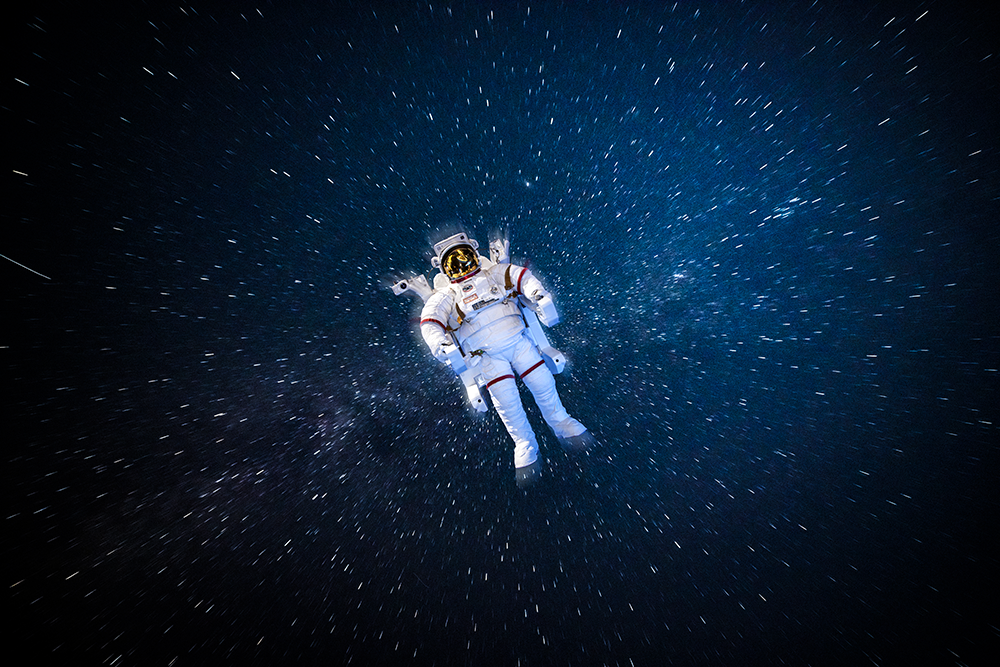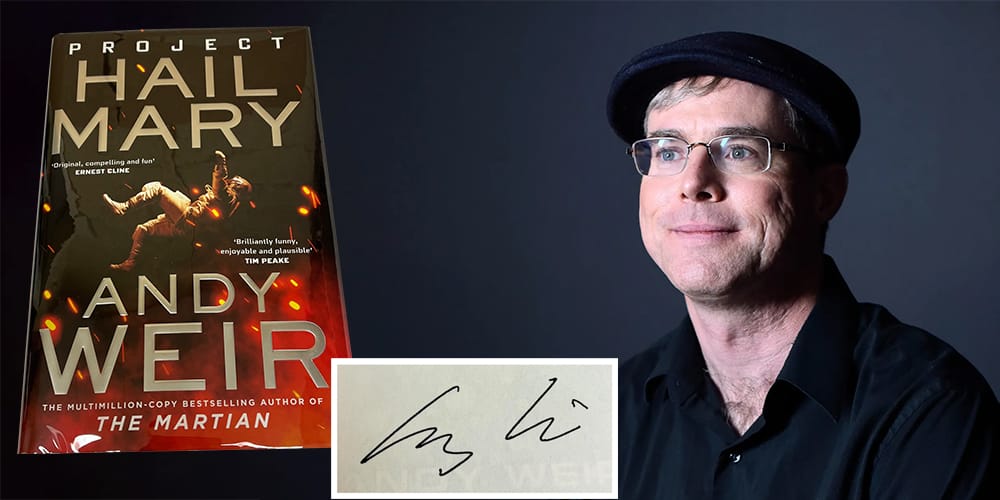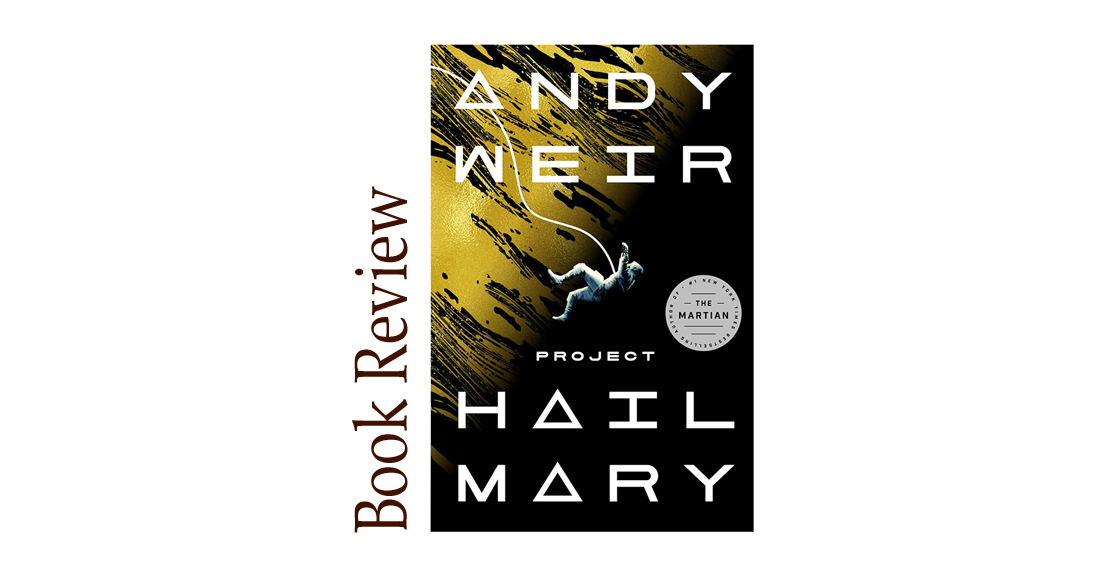- Published:
2021 - Length:
496 pages—Listening Time: 16 hrs, 10 minutes - Genre:
Science Fiction - Setting:
Near future, aboard a spaceship located somewhere in the Tau Ceti system, 12 light-years from Earth - Awards:
Audie Award for Audiobook of the Year 2022: Andy Weir, Ray Porter; Goodreads Choice Awards Best Science Fiction 2021: Andy Weir; Audie Award for Science Fiction 2022: Andy Weir, Ray Porter - Language:
English, but translated into at least 15 other languages - Sensitive Aspects:
Mild language - Movie:
Amazon MGM Studios' major motion picture is to be released March 2026, starring Ryan Gosling. - Recommend for Book Club:
YES, if members are open to reading science fiction

I claim that I'd prefer a root canal over diving into a science fiction book. Science fiction is a genre that I'm not particularly fond of. Then, after reading all the positive reviews about Project Hail Mary, I decided to give it a try, being the ambitious bookworm that I am.
Who says old readers can't spice things up a bit? I had a blast reading this book! Now, the technical, space stuff zoomed over my head like a rocket on caffeine, but the human and alien-with-human-qualities of this book had me hooked at the first chapter and kept me intrigued throughout the whole thing.


Project Hail Mary by Andy Weir is centered around Ryland Grace, a former molecular biologist turned middle school teacher who awakens on a spacecraft with amnesia and is tasked with saving humanity from extinction.
Earth faces an existential threat from Astrophage, a microscopic alien organism that consumes electromagnetic radiation and carbon dioxide, causing a catastrophic dimming of the Sun. With global temperatures plummeting, humanity’s last hope lies in a mission to the Tau Ceti system, 12 light-years away, to investigate why this star has resisted Astrophage infection.
Grace, the sole survivor of the crew, must piece together his memories and use his scientific expertise to unravel the mystery. His journey intertwines with flashbacks detailing the mission’s origins, including the discovery of Astrophage on Venus and the development of a spacecraft fueled by the organism itself.
A pivotal twist emerges when Grace encounters Rocky, a spider-like alien engineer from the 40 Eridani system, who shares his planet’s own struggle against Astrophage. Their collaboration leads to a groundbreaking solution involving quantum entanglement and biological engineering to neutralize the threat.
The novel emphasizes scientific problem-solving and interstellar cooperation. In other words, the ETs are not our enemy, but rather our colleagues who share the same existential challenge. Weir balances technical explanations with humor, though some readers may find the dense scientific content demanding.


I would recommend this book for any avid reader. Here’s why:
You don't have to be a space geek or science nerd to "get it."
The reluctance of the main character to save the world is charming. The poor guy wakes up on a spaceship with no memory of where he is or what is going on. Sort of like me attempting to read science fiction, this story is very relatable.
The scientific mysteries are compelling.
Andy Weir crafts a gripping narrative centered on Astrophage, the single-celled organism that threatens Earth’s survival. Ryland Grace awakens in a spaceship with fragmented memories, unraveling a high-stakes mission to save humanity through scientific problem-solving. The blend of thriller elements, space adventure, and existential urgency keeps readers engaged.
The complex science of the book can be understood because of the immersive storytelling
Weir simplifies complex scientific concepts through Ryland’s perspective as a middle-school science teacher, making astrophysics and biology digestible for non-experts. The first-person narrative heightens emotional immersion, mirroring Ryland’s confusion, desperation, and triumphs.
The story is loaded with unexpected twists and emotional depth.
The plot unfolds with layered surprises, including planetary collaboration and Ryland’s evolving relationship with the alien Rocky. Themes of self-sacrifice and global unity add depth, while humor and camaraderie balance the dire premise.
There is a balanced blend of science and fiction
Believe me, I wouldn't have made it through ten pages if this hadn't been the case. Weir merges rigorous scientific accuracy with speculative elements, creating a grounded yet imaginative world. The dual timeline structure—alternating between Ryland’s mission and flashbacks—avoids isolation and expands the narrative scope.
It's a feel-good, thought-provoking experience.
Despite its apocalyptic stakes, the novel emphasizes hope and resilience, avoiding dystopian tropes. Its focus on collaboration and curiosity makes it a standout in science fiction, leaving readers with a sense of wonder.
For fans of The Martian, Project Hail Mary delivers a similarly engaging mix of science, suspense, and humanity, though with a broader cosmic scope. Approach it blindly with no expectations, like I did, and you'll have a totally enjoyable experience.


Get Andy Weir Books
Andy Weir’s novels blend meticulous scientific accuracy with gripping narratives of survival and ingenuity.
Bookshop.org was created as a socially conscious alternative to Amazon, with the goal of helping local, independent bookstores thrive. This is why Readers With Wrinkles supports their efforts. Please join us in this effort by purchasing your next read here.

If you enjoyed Project Hail Mary for its blend of hard science, humor, and interstellar problem-solving, here are tailored recommendations:
Core Recommendations
- The Martian (Andy Weir): Stranded astronaut Mark Watney uses science and wit to survive on Mars. Weir’s signature mix of technical detail and humor makes this a natural follow-up.
- We Are Legion (We Are Bob) (Dennis E. Taylor): A humorous, science-driven story about a man’s consciousness uploaded into a self-replicating space probe, exploring the cosmos while solving existential threats.
- Children of Time (Adrian Tchaikovsky): A sweeping saga of human survival and sentient spiders evolving on a terraformed planet, blending hard science with evolutionary speculation.
- Dark Matter (Blake Crouch): A mind-bending thriller about alternate realities, featuring a protagonist racing to solve a physics-based mystery.
- Seveneves (Neal Stephenson): A meticulously researched epic about humanity’s scramble to survive an apocalyptic cosmic event, spanning millennia.
Other Options
- Artemis (Andy Weir): A lunar heist story set in the moon’s first city, combining technical ingenuity with fast-paced action.
- The Murderbot Diaries (Martha Wells): A sarcastic, self-aware security android navigates space adventures, balancing humor and existential questions.
- Columbus Day (Craig Alanson): A military sci-fi series with witty dialogue and first-contact themes, focusing on human-alien alliances.
- Red Rising (Pierce Brown): A dystopian space opera with intense action and societal upheaval, though less science-focused than PHM.
- The Expanse Series (James S.A. Corey): Political intrigue and survival in a colonized solar system, emphasizing realistic physics and human drama.
Niche Picks
- A Gift of Time (Jerry Merritt): Time-loop narrative with scientific problem-solving to prevent Earth’s destruction.
- The Gone World (Tom Sweterlitsch): A blend of cosmic horror and time-travel mystery, exploring existential threats.
- Sentenced to Prism (Alan Dean Foster): A survival story on a silicon-based alien planet, emphasizing creative problem-solving.
- The Calculating Stars (Mary Robinette Kowal): An Alternate history where women lead space exploration during a climate crisis.


Comments